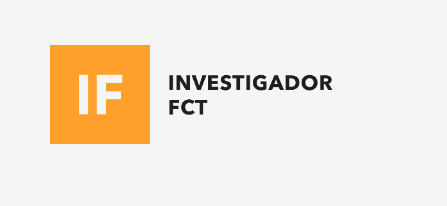

instituto de biologia molecular e celular | institute for molecular and cell biology
IBMC is the host institution of 7 new researchers that received an FCT Researcher Grant: Nuno Alves, Reto Gassmann, Carla Renata Gonçalves de Freitas, Eurico Morais de Sá, José Bessa, Sandra Sousa, and Ana Carvalho. INEB is the host of 1 researcher that received an FCT Researcher Grant: Cristina Barrias.
 The FCT Researcher Programme, from the Portuguese Science Foundation, aimed to create a talent base of scientific leaders, by providing 5-year funding for the most talented and promising researchers, across all scientific areas and nationalities.
The FCT Researcher Programme, from the Portuguese Science Foundation, aimed to create a talent base of scientific leaders, by providing 5-year funding for the most talented and promising researchers, across all scientific areas and nationalities.
Nuno Alves is a Ciência 2008 researcher at Instituto de Biologia Molecular e Celular (IBMC) since 2009. Nuno is an Immunologist with a particular interest in thymus development and function. He obtained his Ph.D. from the University of Amsterdam in 2007, working in the laboratory of Professor Rene van Lier at the Academic Medical Center. He later moved to the Institut Pasteur, in Paris, for his postdoctoral training in the laboratory of Professor James Di Santo. In 2010, he joined IBMC and initiated his research line studying the differentiation of thymic epithelial cells, which play a prominent role in T-cell development and in the establishment of immune tolerance. In 2014, Nuno is starting a career development grant supported by the Investigator FCT programme. MORE INFO
Reto Gassmann is interested in how the molecular motor cytoplasmic dynein is regulated in space and time to fulfill its many roles in dividing and non-dividing cells. Reto graduated from the Swiss Federal Institute of Technology in Zürich with an MSc degree in Biochemistry and Molecular Biology. He then pursued doctoral studies in Edinburgh in the group of Bill Earnshaw at the Wellcome Trust Centre for Cell Biology, where he investigated chromosome structure and segregation. After postdoctoral research on kinetochores (the attachment point for microtubules on chromosomes) in the group of Arshad Desai at the Ludwig Institute for Cancer Research in San Diego, Reto joined IBMC in 2012 to continue his research as Principal Investigator. As an FCT Investigator, he will use the nematode C. elegans and cultured human cells to study the function of dynein co-factors. MORE INFO
Renata Freitas research is focus on understanding the molecular mechanisms responsible for the evolution of animal design generating the impressive diversity seen across vertebrates. She is also interested to explore how changes in those mechanisms lead to congenital birth defects in humans. Most of her research was conducted under the paradigmatic question of how locomotory structures appeared and evolved in vertebrates. Pursuing this topic, she is currently studying developmental pathways associated with HoxD genes, which are transcription factors strongly involved in limb morphogenesis and patterning. These questions are being addressed using mainly zebrafish as model organism and combining functional genomics and developmental biology approaches. MORE INFO
Eurico Morais de Sá graduated in Biochemistry at the University of Porto. After joining the GABBA PhD program, he moved to the Gurdon Institute to study cell polarization, obtaining a PhD in genetics at the University of Cambridge, UK (2010). Eurico joined IBMC in 2011, where he aims to understand fundamental principles that control the architecture of epithelial tissues, such as how epithelial cells maintain their shape and spatial organization during proliferation. MORE INFO
José Bessa's research interest focus on vertebrate pancreas development using the zebrafish as a model system. In particular J. Bessa is interested in understanding the impact that non-coding mutations have in pancreas development and the ability this class of mutations have to recapitulate human metabolic disorders. Recently, J.Bessa has developed a new method to generate regulatory mutations coupled with in vivo reporters. Using this method and new technology his lab is developing at present, he will study gene regulation and function, targeting the non-coding genome and opening new insights to link the genome's “non-coding” code and phenotype.
Sandra Sousa research interests are focused on the study of molecular mechanisms underlying pathogen survival, multiplication and dissemination within host epithelial cells. She graduated in Microbiology in Porto and moved to Paris where she obtained a Master Degree at École Normale Supérieure and University of Paris 7. During her PhD at Institut Pasteur she studied the mechanisms of bacterial invasion of host epithelial cells. Sandra joined the IBMC by the end of 2005. As FCT investigator, Sandra will use the bacterial pathogen Listeria monocytogenes as a tool to study new functions of host cytoskeleton components and characterize new regulatory mechanisms relevant in the context of infection and in basic cell biology processes. MORE INFO
Ana Carvalho's research interest lies in understanding the mechanisms that drive cytokinesis, the final step of cell division. Ana graduated in Biochemistry in the University of Porto. As a GABBA student, she carried out her doctoral studies in the laboratory of Prof. William Earnshaw at the Welcome Trust Centre for Cell Biology in Edinburgh, UK, where she investigated the roles of the chromosomal passenger protein complex. Her postdoctoral work in the laboratory of Prof. Karen Oegema at the Ludwig Institute for Cancer Research in San Diego, USA, focused on the development of quantitative live imaging assays to study cytokinesis. As an FCT Investigator, she will focus her research in the study of the structural organization and dynamics of the contractile ring, a filamentous structure of actin and myosin that drives cytokinesis. The experimental approaches will include live cell imaging, laser microsurgery, electron microscopy, and biochemistry and will be conducted in C. elegans embryos.
Home | Site Map | Contacts | Credits | Privacy & Cookies | WHISTLEBLOWER CHANNEL | Intranet | Social Networks |
